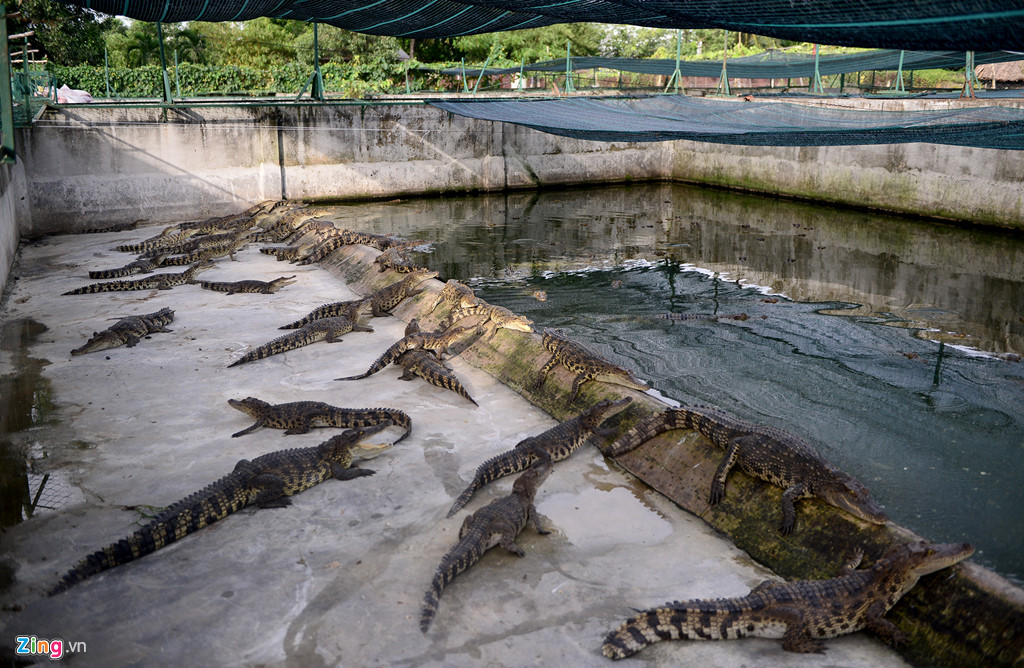[ad_1]
In an effort to enhance the effectiveness of state management to prevent the trafficking of wildlife and create favorable conditions for the development of legal wildlife farming, HCMC authorities have approved a program on crocodile and wildlife development in the city in 2016-2020.
The city aims to raise the total value of crocodile and wildlife products to VND3.5 billion/ha/year by 2020, strictly control epidemics and terminate the wildlife breeding in districts in inner city. It will help gradually reduce the export of raw materials, and increase the number of crocodile farms in accordance with CITES standards.
Under the program, the municipal authorities will strengthen management over restaurants, tanning workshops and traditional medicine production establishments using wildlife as input materials. In addition, the ‘hot spots’ of trafficking and illegally breeding wildlife in captivity will be cleared.
There are 138 wildlife farming establishments in HCMC, which mostly raise crocodiles, snakes and pythons. These include establishments farming wildlife for large enterprises allowed by CITES to export crocodiles.
According to Lam Tung Que from the HCMC Forest Rangers’ Unit, the weather conditions in HCMC are extremely favorable for the breeding of snakes, crocodiles and varans. Therefore, allowing people to raise wildlife to improve their income is a reasonable decision.
|
There are 138 wildlife farming establishments in HCMC, which mostly raise crocodiles, snakes and pythons. These include establishments farming wildlife for large enterprises allowed by CITES to export crocodiles. |
In 2016, HCMC exported 30,000 crocodiles at the price of VND3 million/crocodile and exported 80,000 tons of python skin at the price of VND4 million/sheet. However, as the city mostly exported raw materials, the export turnover was modest.
HCMC recently decided to cooperate with some Italian enterprises to make products with higher value.
However, Que stressed that it is necessary to put the farms under strict control to prevent wildlife traffickers from mingling with animals they capture in the wild with farmed animals. Some similar cases have been discovered recently.
Nguyen Xuan Luu, head of the HCMC Forest Rangers’ Unit, said wildlife traffickers not only extirpate resources, but also affect the sale of legally farmed products.
To settle the problem, farm owners are requested to report the number of animals periodically while state management officers usually take irregular tours to farms.
Dang Huy Huynh, chair of the Vietnam Animal Protection Association, applauding the program, said breeding the right species with the appropriate method conserves wildlife and genetic sources.
Spotted deer, for example, have been saved thanks to the farming, while people are earning high incomes from deer breeding.
However, he stressed that wildlife animals must be raised under strict control by appropriate agencies. Improper breeding will lead to epidemics or pollution.
RELATED NEWS
What to do with captured wildlife
WWF report: Vietnamese, Chinese tourists blamed for wildlife trafficking
Thien Nhien
[ad_2]
Source link
